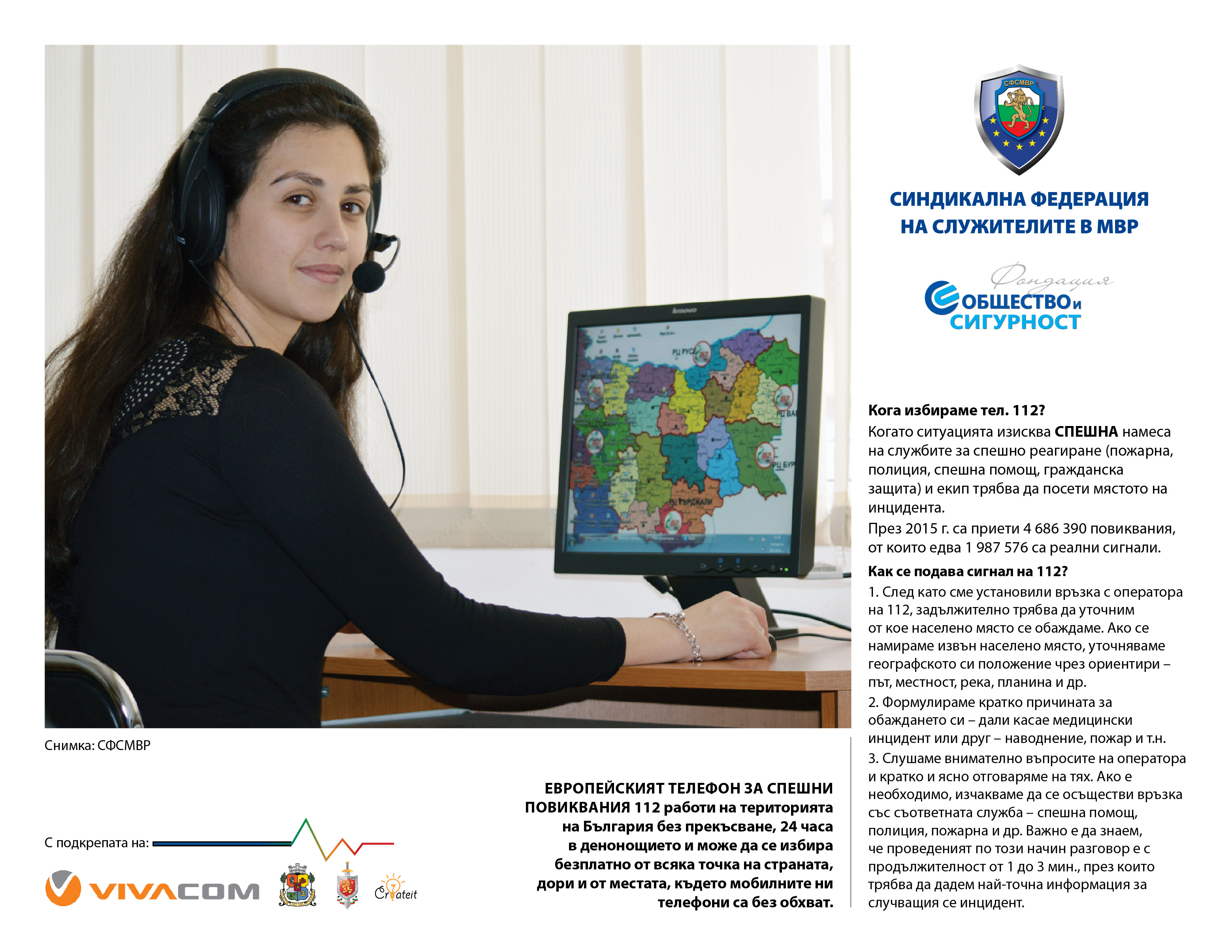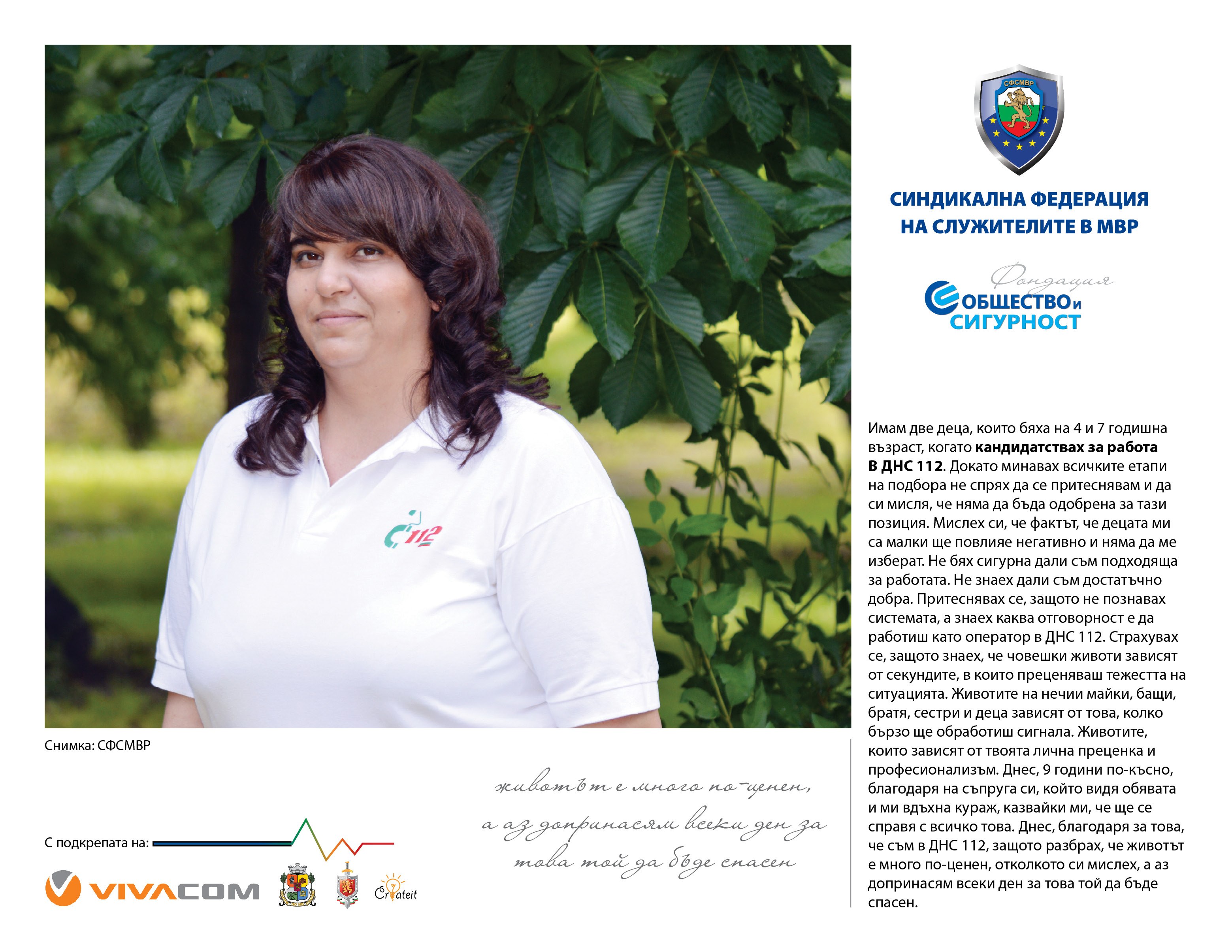- 01.09.2016
When we have to call on 112?
When we are calling on 112? When the situation requires URGENT intervention of the emergency services (fire brigade, police, emergency, civil protection) and a team have to be sent at…
Read Още- 01.09.2016
I work in National System 112
I have two children who were 4 and 7 years old when I applied for a job in the 112 Emergency line in Bulgaria. While I was passing all phases…
Read Още- 01.09.2016
The issues in National System 112 in Bulgaria
In 2015, 4,686,390 emergency calls are accepted and only 1,987,576 are real. Who is responsible for the unreal signals received? Who educates the citizens? Who and how impose sanctions for…
Read Още- 19.07.2016
We, the Bulgarians!
“Do you know, we all Bulgarians, are sad people. We taunt the police, sing humiliating songs about police officers, spit it out and caricature the system, and when we are…
Read Още- 30.03.2016
Managing traumatic stress: Coping with terrorism
Terrorism threatens a society by instilling fear and helplessness in its citizens. It seeks to hold a society or government hostage by fear of destruction and harm. When terrorist acts…
Read Още- 08.03.2016
Meet Mariela. One of the women sharing and living with those who care for us.
“My husband was forced to learn how to cope alone with stress at the workplace. He did it, because it was the only way to protect us. He did it,…
Read Още- 07.03.2016
Meet Tanya. One of the women, telling us the real story about the dreams of the man who works in the Ministry of Interior
“I live with a man who from his an early age dreamed to be a police officer. A man who is driven by the desire to care and help people. Today,…
Read Още- 15.02.2016
Let’s talk about Ministry of Interior by facts
In 2015, 3168 people have left the Ministry of Interior. More than 2/3 of them are working at field and are at operational positions. From all employees quit the system…
Read Още- 13.02.2015
How do we see the participation of civil and professional organizations in Ministry of Interior’s reforming?
The most important element of the whole process is institutionalized of forms and procedures for citizen participation in reforming the Ministry of Interior. The second crucial component is uniting around…
Read Още- 03.02.2015
Citizen participation in MI: Mission (im) possible!
The main issue which united representatives of trade unions, professional organizations and NGOs in terms of public order and security, is that the “security” service provided to citizens, is not…
Read Още- 03.02.2015
The failed reform!
Ministry of Interior is the only unreformed Ministry in Bulgaria, but also one of the ministries in which structural changes are the most numerous. One of the major structural changes…
Read Още- 03.02.2015
Why it is necessary and important in the whole process of reforming trade unions to participate?
Reforms that are realized at the time, as mentioned, are parceled and ineffective. Reforms in the Ministry of Interior needs to be long-term, have consulted with civil and professional organizations,…
Read Още


